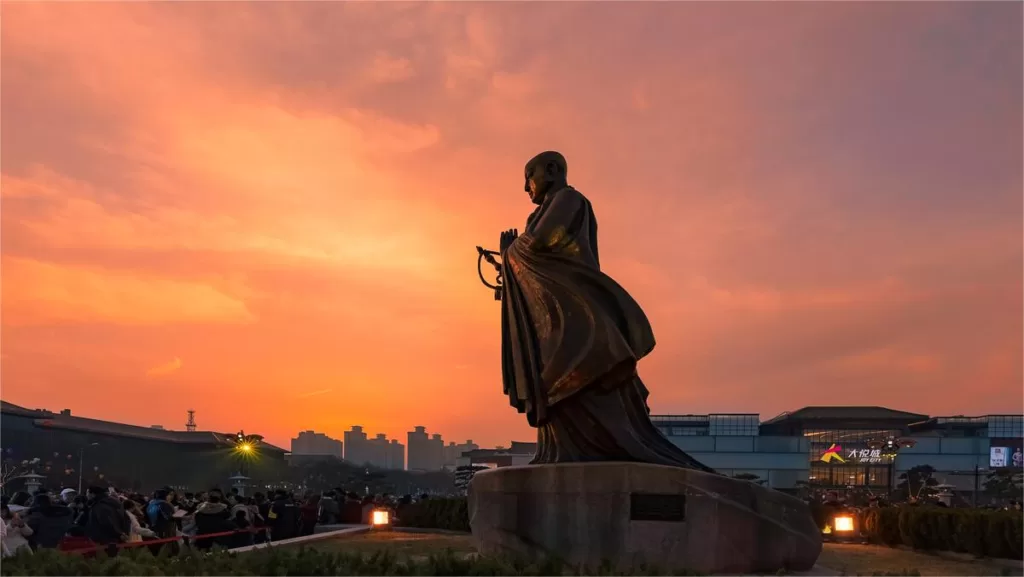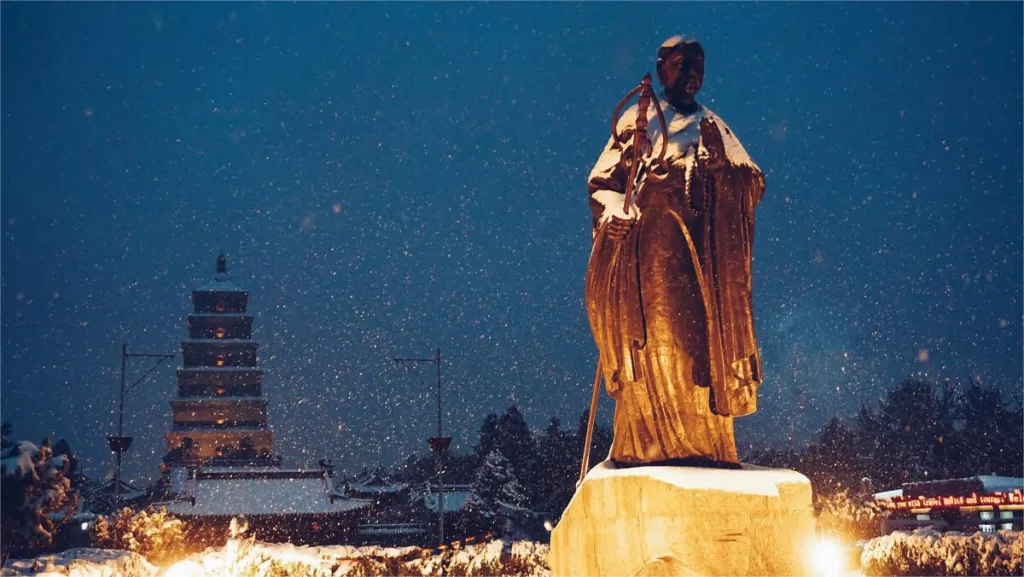Xuanzang (玄奘), also known as Tripitaka in Chinese, was a famous Chinese Buddhist monk, scholar, and traveler who lived during the Tang dynasty (618–907). He is widely known for his journey to India, where he spent over a decade studying Buddhism and collecting Buddhist scriptures. His travels greatly influenced the spread of Buddhism in China, and he is regarded as one of the most important figures in Chinese Buddhism.
Xuanzang was born in 602 CE in Luoyang, China. His family was of modest means, but they were able to provide him with an education. Xuanzang was a brilliant student and showed a keen interest in Buddhism from a young age. When he was 13 years old, he was ordained as a monk and began his studies in earnest.
In 629 CE, at the age of 27, Xuanzang decided to undertake a journey to India, the birthplace of Buddhism. He believed that the Buddhist scriptures in China were incomplete and that a complete understanding of Buddhism could only be achieved by studying the original texts in India. Despite the dangers and difficulties of traveling such a long distance, Xuanzang was determined to complete his mission.
He set out with a small group of companions and traveled through the Gobi desert, across the Pamir Mountains, and through modern-day Afghanistan and Pakistan. Along the way, they encountered many hardships, including bandits, harsh weather conditions, and illnesses. Xuanzang’s faith in Buddhism and his determination to achieve his goal kept him going.
When he finally reached India, Xuanzang spent several years studying at the great Buddhist universities of Nalanda and Taxila. He studied under some of the most renowned Buddhist scholars of the time, and his knowledge of Buddhist philosophy, language, and culture grew immensely. He also collected thousands of Buddhist scriptures, which he brought back to China with him.
Xuanzang’s journey back to China was just as difficult as his journey to India. He and his companions faced many of the same dangers and hardships, but they managed to return safely to China in 645 CE. Xuanzang’s journey was widely publicized, and he became famous throughout China for his achievements.
Upon his return, Xuanzang was given a hero’s welcome. He was praised for his bravery, his devotion to Buddhism, and his contribution to Chinese culture. He spent the rest of his life translating the Buddhist scriptures he had collected into Chinese, and he wrote several books about his journey and his studies.
Xuanzang’s legacy is immense. He is regarded as one of the greatest Buddhist scholars in Chinese history, and his translations of Buddhist texts are still widely used today. He is also remembered for his courage, his determination, and his unwavering faith in Buddhism. His journey to India remains one of the most incredible feats of exploration and scholarship in human history.
Facts about Xuanzang






